EU and US restart transatlantic trade talks
- Published
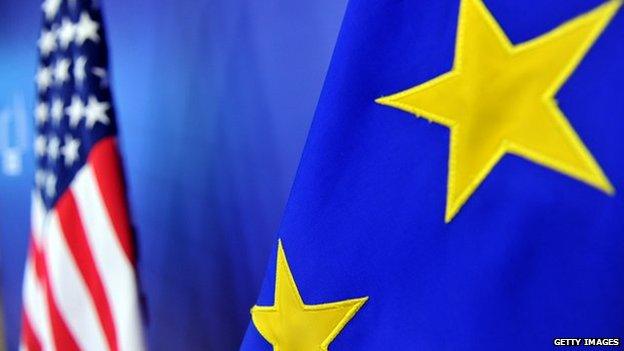
It would be the biggest trade deal of all, involving the world's two biggest developed economies - and it is very controversial.
American and European trade negotiators get back to business on Monday, as they work for a new trade agreement, called the Trans-Atlantic Trade and Investment Partnership, or TTIP for short.
Supporters see this as an opportunity to stimulate economic growth and raise incomes in the EU and the US.
Opponents say it is an agenda driven by international business that threatens environmental, health and safety standards and would undermine the sovereignty of governments.
The talks, lasting all week in Arlington, Virginia, are the fifth round in a negotiating process that began last year.
In part these negotiations are about the traditional stuff of trade talks - reducing or even eliminating tariffs, or taxes applied to imports.
For most goods, however, tariffs are already low in the EU and the US, although there are some exceptions.
So the talks are also tackling other types of trade barrier, in particular different approaches to regulation.
That can add to the costs for business, if product standards or approval procedures are different, external.
Working together
Marcus Beyrer, director general of the lobby group Business Europe, says tackling this type of divergence would help enable firms avoid the need to have "production processes done twice or designs done twice".
"So this would make production cheaper and it would also make the cost for the consumer cheaper."
He says that small and medium sized enterprises would gain most in this area.
The EU's Trade Commissioner, Karel De Gucht, says a deal would really give a boost to both economies.
In the longer term, working together in this area "would preserve our leading position in the global economy for the next generation", he says.
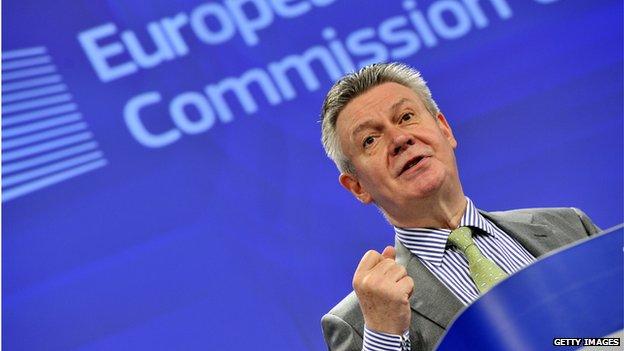
The EU's Karel De Gucht says an agreement would bring significant economic benefits
One study for the European Union estimated a deal would generate more than 500 euros (£407) of additional income for a normal household in Europe.
And it suggested there would be additional economic output of 120bn euros across the EU. That in turn would mean millions of new jobs, he says.
'Major risk'
However, critics say these gains are exaggerated.
Olivier Hoedeman of Corporate Europe Observatory, a Brussels-based group which monitors business lobbying in the EU, says the 500-euro-per-family figure is based on what he calls the most extreme scenario if you harmonise all legislation and regulations.
Even then, he says, you would achieve that kind of growth in 25 years from now.
One critical assessment of the European Commission's figures by an Austrian research agency described the possible benefits as "very small", external.
Olivier Hoedeman also criticises the drive to reduce regulatory barriers to trade.
Differences between the US and the EU in that area, he says "are the result of a democratic debate about what kind of environmental legislation, what kind of consumer protection we want".
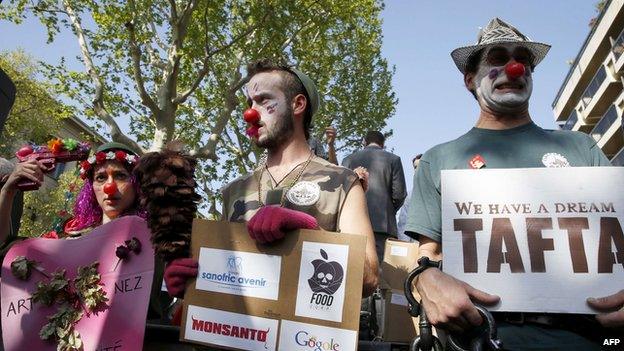
Critics argue only big businesses will benefit in any deal
He says there is a major risk that the negotiations will result in lower standards in these areas.
One example where he has concerns is genetically modified food. He says business wants to see European restrictions relaxed.
For its part, the European Commission says that EU laws covering these foods will not be changed.
Democratic constraint?
Another area of intense controversy is an arrangement called ISDS, or investor-state dispute settlement. The TTIP would enable foreign investors to go to arbitration if new regulations have an adverse impact on them.
This type of arrangement already exists in many international trade and investment agreements, but opponents say it constrains democratic governments. , external
Olivier Hoedeman of Corporate Europe Observatory worries this provision could have a chilling effect on governments which may be reluctant to regulate in the public interest because they fear being taken to court.
There are some highly controversial cases where this type of provision in other agreements has been used.
For example, the American international tobacco company Philip Morris is challenging the plain packaging legislation for tobacco products introduced in Australia.
It is doing so through a Hong Kong company, because the territory has an investment agreement with Australia that includes a provision for such arbitration.
As yet, there has been no ruling in this dispute.
Commissioner De Gucht accepts that there are problems with the way investment agreements have worked in practice.
He says he wants to keep the options open for governments to do whatever they need that is in the public interest.
He is also sensitive to some of the other issues raised by the Philip Morris case.
He wants to ensure that cases cannot be launched from what he calls post box offices - a reference to the tobacco company's use of the Hong Kong investment agreement.
But he is clear that he thinks the investor protection arrangements are worth having.
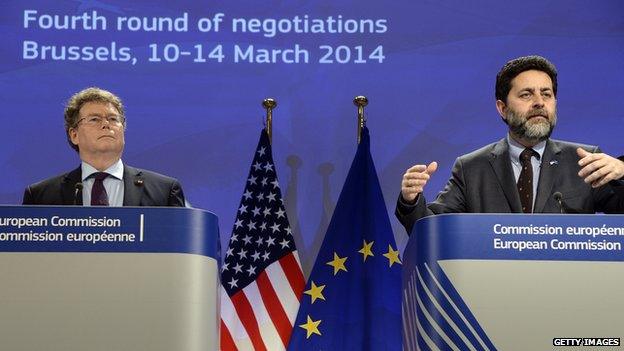
The EU and US start a fifth round of talks this week, but significant differences remain
NHS concerns
Marcus Beyrer of Business Europe says it is not about limiting the sovereignty of governments but about defending companies against discrimination and what he calls "discriminatory expropriation".
It also about getting compensation, he says, if governments do break international law or discriminate.
Yet critics of such a transatlantic deal say that there's a particular issue about the TTIP's potential impact on the British National Health Service. , external
The argument is that the arbitration and compensation provisions in the TTIP would make it much more difficult to reverse any moves towards getting private contractors involved in the NHS - because international companies might be able to sue if their profits were affected.
Finally, there is quite a battle about the transparency of these negotiations. Critics say they have all been far too secretive.
The European Commission says you need a certain degree of confidentiality, "otherwise it would be like showing the other player one's cards in a card game".
But ultimately they say it will be the member states' governments and the European Parliament that decide whether any deal is accepted or rejected.
- Published22 January 2014
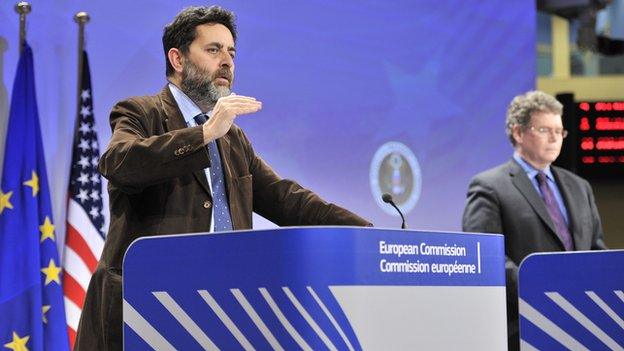
- Published15 November 2013
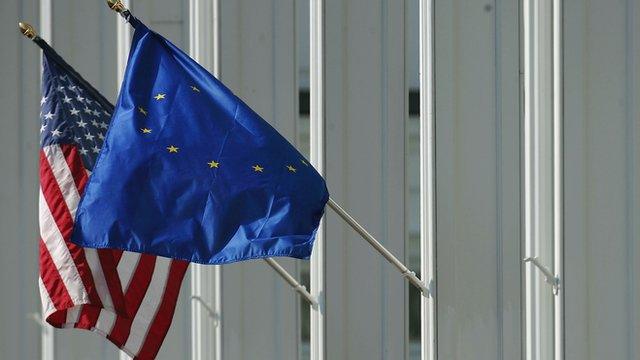
- Published11 November 2013
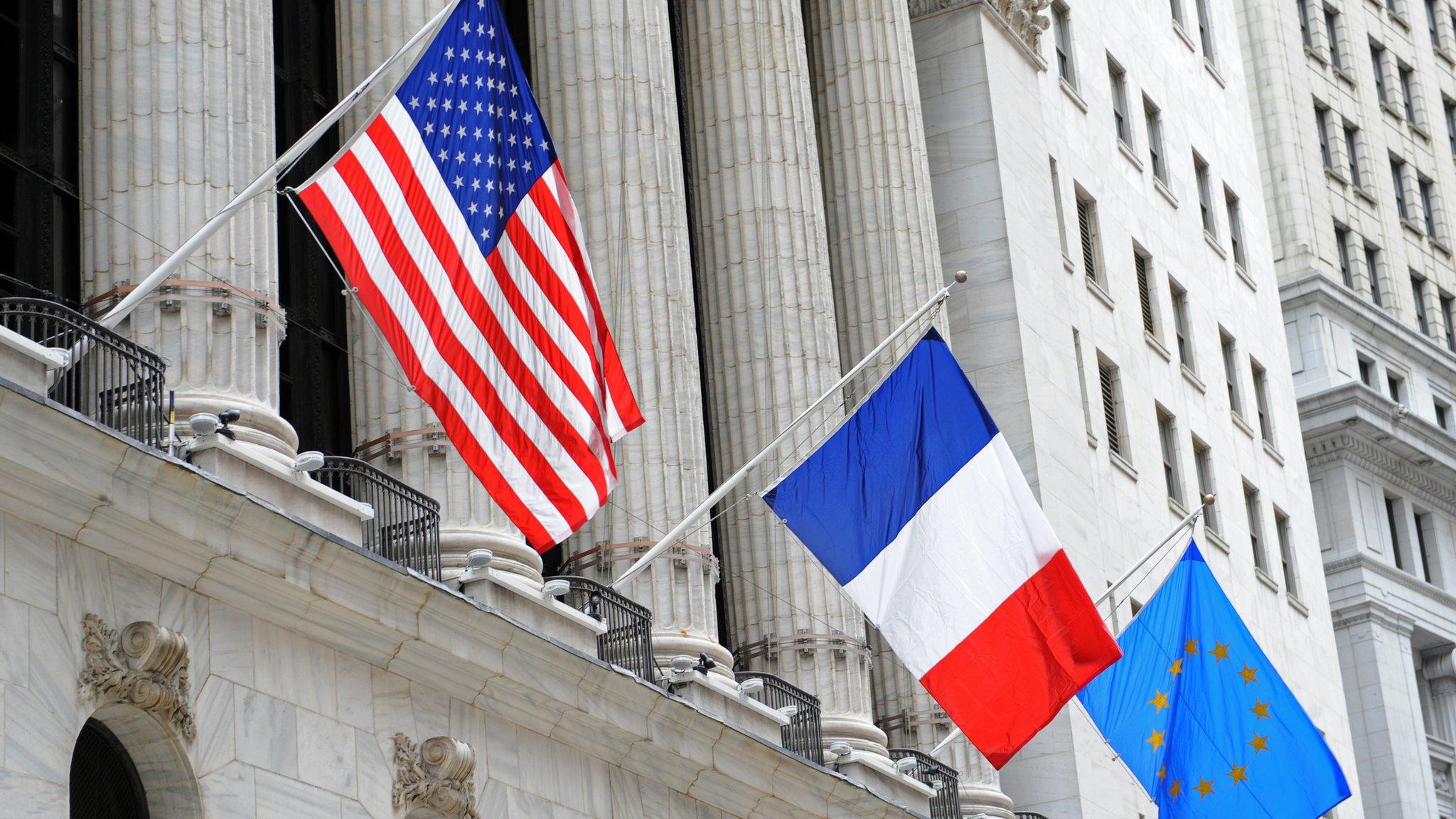
- Published9 July 2013
